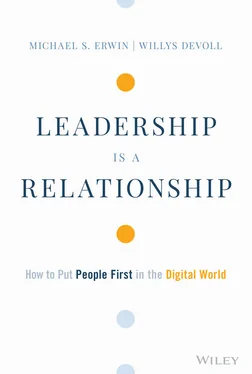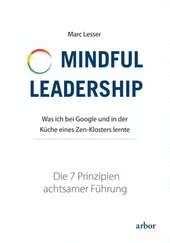Dinner out is just one way to think about how deeply digital distractions have embedded themselves into our lives. Think about the family dinner, the car ride with a sibling or co-worker, the quick errand to the convenience store around the corner. Spaces that used to require face-to-face conversation—and that therefore used to kindle our relationships with both loved ones and strangers—are now opportunities to check on emails, tweets, tags, DMs, sports scores, hot takes, the newest deal on denim … you name it. Beautiful phones and almost ubiquitous internet access have opened virtually every event to extraneous information. Our grandparents often experienced situations in which they had to either shoot the breeze with the folks around them or make the uncomfortable choice to sit in silence. In those same situations today, we can effortlessly learn what the Canadian prime minister is doing or watch on-demand highlights from last night's basketball games. The old carve-outs for sociality—for relationship-building—are open to distraction. The siege on relationships is well underway.
The average American spends more than four hours a day on their phone. 2 The digital economy has given us amazing stuff. Some of the world's most brilliant content creators, software engineers, and behavioral economists spend each day making your phone an even more compelling option for your time and attention. We can't get enough, and for many of these tech products, we can't get enough of communicating with each other. There's a beautiful humanity to that. Life in the Information Age engages the best parts of us, from our curiosity and energy to our creativity and desire to love. It's no wonder that in less than one generation, we've completely reshaped the inputs of our experience—with the universe at our fingertips, smartphones have become a pillar of society.
Seductive digital offerings don't just take time away from the time-tested actions that build relationships. They also pull a clever sleight of hand. Facebook, Twitter, Instagram, TikTok, and other social network products promise human connection in radical ways, and at radical scale. Their marketing and communications strategies sell their apps as pioneering ways to be “more connected” to people around you and around the world, and they allow us to communicate with people we'd never meet otherwise. But their actual goal, their raison d'être, is something else entirely. They're built to hook you on their universe of connected apps, maximize the amount of time you spend on their platforms, and remove you from social interactions in the physical world. The better they are at doing so, the more ads they can show you, and the more money they can make for their shareholders. A former Facebook executive told a group of business students that “the short-term, dopamine-driven feedback loops we've created are destroying how society works,” before letting them know that he doesn't allow his kids anywhere near social media. 3 Every minute that you spend staring at a screen instead of talking to a friend is a minute in which tech companies can show you more revenue-generating ads. Your face-to-face time is their next business opportunity.
Are smartphones the end of our social lives? Of course not. When we say that the modern attention economy has laid siege to relationships, we aren't suggesting that we're a few years away from all living in abject isolation. Instead, relationships are under siege because meeting, getting to know, and caring for other people has never required more deliberate intention. As the technology scholar Dr. Sherry Turkle notes, the mere presence of a phone even if we're not interacting with it changes the kinds of topics that people talk about. If we see a phone, we tend to talk about less substantive things, and we tend to report less connection with our conversation partner. 4
We're feeling the consequences of that watering-down. Turkle describes how the college students she studied yearn for more time together and completely divorced from phones. Young people appreciate much of what technology offers, but also wish that it were less invasive in their relationships:
I interview college students who text continuously in each other's presence yet tell me they cherish the moments when their friends put down their phones. For them, what counts as a special moment is when you are with a friend who gets a text but chooses to ignore it, silencing his or her phone instead. 5
As we've gotten superficial access to billions of people around the world, technology has clawed our attention away from those around us. We might be able to communicate with everyone, but it's difficult to get close to anyone.
With new distractions and methods of communication, relationships exist in several different realms: the Facebook friendship, the Twitter reply, the Instagram like, the WeChat thread, the group text, and, you know, the old-fashioned, face-to-face conversation or lengthy phone call. Our not-so-distant ancestors had a couple of ways to communicate with friends and loved ones, and they weren't available at every hour of the day. We, on the other hand, can't even name all of the different options we have for sending someone a message—and each of those channels requires a different style of communication. Speaking a tweet in actual conversation would be bizarre, and the style of an Instagram comment is a whole lot different (and emoji-laden) than what you might send the same person in a handwritten note.
Let's call this dizzying phenomenon relationship complexity: relationships have become much more complex as a direct consequence of the number of communication channels, styles, and expectations that the twenty-first-century economy has produced. Even the most earnest, compassionate, and energetic person has a more complicated social landscape today than they would have just 10 or 20 years ago … let alone 50. Although it's hard to say exactly how much more convoluted relationships have become, the proliferation of information tech has upped complexity by orders of magnitude.
Complexity itself isn't bad, but relationship complexity is very hard to manage on a daily basis. As creatures that didn't evolve beside such overwhelming stimuli, we're understandably struggling. The United States is just one of several developed countries with a well-documented epidemic of loneliness and weakened relationships. The 2020 Cigna Loneliness Survey, one of the most-cited measures of sociality in America, found that 61 percent of Americans are lonely. 6 That figure comes from before the pandemic. As Covid-19 shut the world down and forced us to stay in our homes, it also illustrated just how far technology still is from effectively replacing face-to-face relationships. Unlike other kinds of disasters and heartbreaks, the pandemic was cruelly well-suited to threaten our relationships. Shared spaces, from schools to gyms to community centers to restaurants, shuttered. Many haven't and won't return. Weddings, funerals, and bedside consolation for the sick—age-old rituals of connection—became impossible. A huge number of jobs became remote positions. It's important to reiterate this particular torture of the pandemic: on top of all of its monstrous tolls, it exponentially accelerated the trend away from communal, face-to-face experiences and toward physical and emotional isolation. What the smartphone created, the pandemic amplified.
As we dive deeper into our own personalized digital worlds, social and political polarization continue to rise and threaten not only our social institutions, but also our sense of common purpose. And, of course, understanding and adapting to technological innovation is hard because technology just keeps changing. With the convergence of both the overstimulation and pandemic crises, we're beginning to appreciate in vivid detail just how much 24/7 information overload has affected us.
Читать дальше












